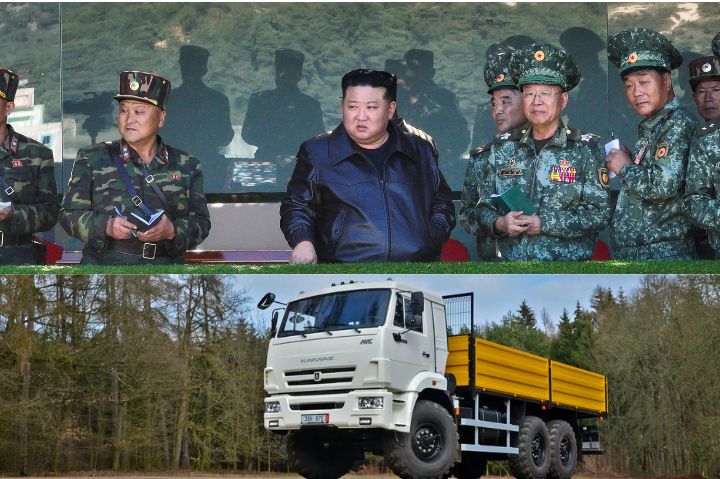In a stunning development on the Ukraine-Russia front, Ukrainian military intelligence (HUR) reports that Russia is transporting thousands of North Korean troops to combat zones using civilian trucks to avoid international scrutiny. On October 27, Russian police stopped a Kamaz truck with civilian plates on the Kursk-Voronezh highway, only to find it loaded with North Korean soldiers lacking formal combat orders. The intercepted radio chatter between officers from Russia’s 810th Separate Marine Brigade reveals confusion over the unexpected detainment of the truck, underscoring the covert nature of these troop movements.
This revelation comes on the heels of a shift in tone from both Russia and North Korea, who initially denied Ukraine’s claims but have recently started hinting at a formal defense partnership. Russian President Vladimir Putin, reacting to satellite images allegedly showing North Korean soldiers, cryptically remarked, “If there are images, they reflect something,” indirectly acknowledging Pyongyang’s involvement. North Korea’s foreign ministry added fuel to the fire by stating that any deployment of its troops aligns with international law, signaling a calculated step toward further military cooperation with Moscow.
The reported numbers of North Korean soldiers involved are substantial—and growing. While initial estimates by U.S. and Ukrainian intelligence pointed to 3,000 North Korean troops stationed in Russia for training, recent figures are far higher. South Korean intelligence warns that up to 10,000 North Korean soldiers could be on Russian soil by December, while Kyiv officials say nearly 12,000 have already arrived, including 500 officers and three generals.
Ukraine’s President Volodymyr Zelensky had previously sounded the alarm about North Korean troops’ imminent arrival on the frontlines, estimating their deployment could begin as early as October 27-28. The deployment of North Korean soldiers to reinforce Russian troops adds a complex layer to the Ukraine conflict, heightening fears of broader international involvement and destabilizing implications across Asia.
The unconventional use of civilian trucks to transport these troops highlights Moscow’s intent to mask these operations from global eyes. With mounting evidence and the stakes climbing, the alliance between Moscow and Pyongyang could reshape the balance of power, raising serious questions about the future of the conflict and the extent of North Korea’s military influence beyond its borders. As the international community watches closely, the conflict in Ukraine edges dangerously closer to a larger geopolitical showdown.












